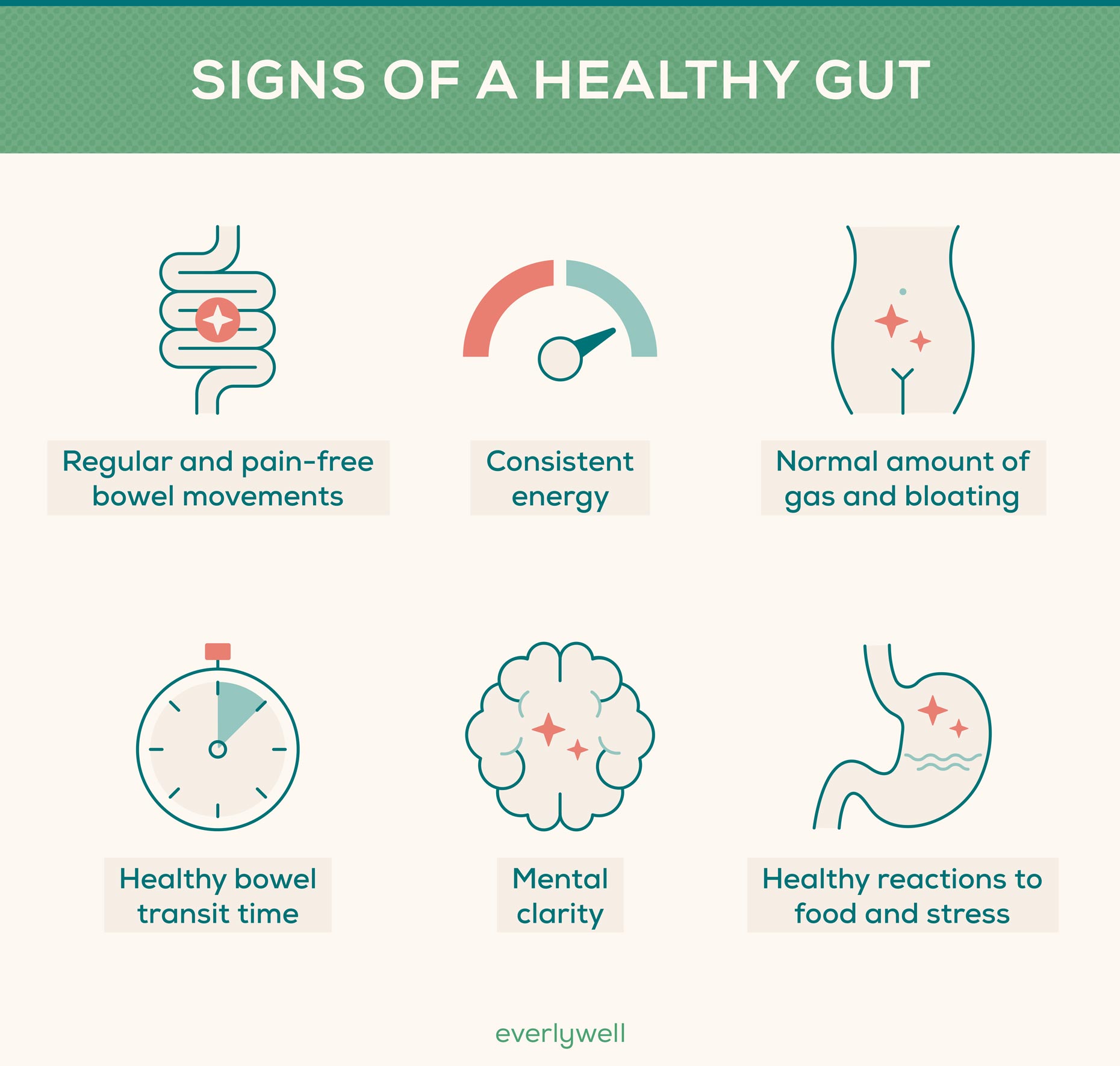Discover the connection between pooping and digestion. This article examines the benefits of regular bowel movements and the impact on gut health.
Throughout our lives, we have become accustomed to the daily ritual of relieving ourselves in the bathroom. But have you ever wondered if this bodily function serves a purpose beyond its obvious necessity? The question arises – does pooping actually improve digestion? This article will explore the relationship between bowel movements and digestion, shedding light on whether emptying your bowels has any tangible benefits for your stomach’s well-being. To uncover the truth behind this common bodily function, we will examine various sources and expert opinions to gain a comprehensive understanding of the correlation between pooping and digestion. So, let us embark on this journey to unravel the mysteries of our digestive processes and its connection to our bowel movements.

Digestive Process
The digestive process is a complex series of events that allows your body to break down and absorb nutrients from the food you consume. It can be divided into several stages: ingestion, digestion, absorption, and elimination.
Ingestion
Ingestion is the process of taking food into the mouth and swallowing it. It is the first step in the digestive process and is facilitated by chewing and saliva production. While ingestion may seem like a straightforward step, it is crucial for ensuring the proper breakdown of food particles and initiating the release of digestive enzymes.
Digestion
Digestion involves the mechanical and chemical breakdown of food into smaller molecules that can be absorbed by the body. Mechanical digestion begins in the mouth with chewing and continues in the stomach and intestines through muscular contractions. Chemical digestion, on the other hand, involves the action of enzymes that break down proteins, carbohydrates, and fats into their individual components. This breakdown enables the body to extract nutrients and energy from the food.
Absorption
Absorption refers to the process by which nutrients from the digested food pass through the walls of the small intestine into the bloodstream. The small intestine is lined with millions of tiny finger-like projections called villi, which increase the surface area available for absorption. Through this intricate system, nutrients such as sugars, amino acids, and fatty acids are absorbed and transported to the cells to fulfill the body’s energy needs.
Elimination
Elimination is the final stage of the digestive process, where undigested waste material, known as feces, is removed from the body through the rectum and anus. This process, commonly referred to as bowel movement or passing stool, plays a vital role in maintaining overall health and well-being.
Role of Pooping
While some people might think of pooping as an embarrassing or inconvenient bodily function, it serves various essential roles in maintaining good health.
Elimination of Waste
The primary purpose of pooping is to eliminate waste products and toxins from the body. Feces contain undigested food particles, water, bacteria, and other waste material that the body does not need. Regular and adequate bowel movements ensure the timely removal of these waste products, preventing the buildup of harmful substances in the body.
Preventing Constipation
Regular pooping helps prevent constipation, a condition characterized by infrequent bowel movements and difficulty in passing stool. When waste material stays in the intestines for an extended period, the body reabsorbs more water from the stool, making it hard and difficult to pass. By promoting regular bowel movements, pooping prevents constipation and maintains healthy bowel habits.
Maintaining Gut Health
A healthy gut is crucial for overall well-being as it houses millions of beneficial bacteria that aid in digestion and support the immune system. Regular bowel movements help ensure the elimination of harmful bacteria and toxins, preventing their accumulation in the gut. This, in turn, maintains a balanced gut microbiome and reduces the risk of digestive disorders.
Releasing Toxins
Pooping plays a vital role in releasing toxins that accumulate in the body. Harmful substances, such as excess hormones and metabolic waste products, are efficiently eliminated through regular bowel movements. By facilitating the removal of these toxins, pooping contributes to the overall detoxification processes within the body.

Effect on Gut Bacteria
The health and balance of gut bacteria, collectively known as the microbiome, greatly influence digestive function and overall well-being.
Microbiome Balance
Regular pooping supports the balance of gut bacteria by eliminating harmful microbes and promoting the growth of beneficial ones. A balanced microbiome contributes to improved digestive function, enhanced nutrient absorption, and a strengthened immune system.
Improved Digestive Function
The presence of a diverse and healthy gut microbiome aids in the breakdown and digestion of food. Beneficial bacteria produce enzymes that help extract nutrients from the diet, preventing indigestion and promoting optimal digestive function. Regular pooping helps maintain a healthy gut environment, ensuring the proper functioning of these digestive processes.
Prevention of Gut Infections
A healthy gut microbiome acts as a natural defense against pathogenic bacteria that can cause gut infections. Regular bowel movements help eliminate harmful bacteria and prevent their overgrowth, reducing the risk of gastrointestinal infections and associated symptoms like diarrhea and stomach pain.
Promotes Regularity
Regular bowel movements are a sign of a healthy digestive system. Pooping on a consistent basis is essential for preventing bowel irregularities, alleviating bloating and discomfort, and relieving indigestion.
Preventing Bowel Irregularities
Consistently pooping at regular intervals helps regulate bowel movements and prevents both constipation and diarrhea. It is crucial to maintain a routine that promotes bowel regularity, as irregularities can lead to discomfort and disruption in the digestive process.
Alleviating Bloating and Discomfort
Bloating and discomfort are common symptoms that arise from gas accumulation in the digestive system. Regular pooping helps prevent the buildup of gas by ensuring the timely elimination of waste material. This can alleviate bloating and discomfort, promoting a more comfortable digestive experience.
Relieving Indigestion
Indigestion, characterized by symptoms such as pain, nausea, and heartburn, can be alleviated by regular bowel movements. When waste material is efficiently eliminated from the body, the digestive system can function optimally, reducing the likelihood of indigestion and associated discomfort.

Impact on Digestive Disorders
Maintaining regular bowel movements through consistent pooping can have a significant impact on various digestive disorders.
Reducing Risk of Hemorrhoids
Hemorrhoids are swollen blood vessels in the rectum and anus that can cause pain, itching, and bleeding. Straining during bowel movements, often seen in individuals with constipation, can worsen hemorrhoids. Regular pooping, with a healthy consistency and without excessive strain, helps reduce the risk of hemorrhoids and promotes overall anal health.
Managing Diverticulitis
Diverticulitis is a condition characterized by inflamed pouches in the colon. It can cause abdominal pain, bloating, and changes in bowel habits. Regular and gentle bowel movements help manage diverticulitis by reducing pressure within the colon and preventing the accumulation of waste material in the affected pouches.
Alleviating Irritable Bowel Syndrome (IBS)
Irritable Bowel Syndrome (IBS) is a common digestive disorder characterized by symptoms such as abdominal pain, bloating, constipation, and diarrhea. Establishing regular bowel movements through consistent pooping can help alleviate symptoms and promote better management of IBS.
Enhanced Nutrient Absorption
Proper nutrient absorption is crucial for obtaining essential vitamins, minerals, and macronutrients from the diet. Regular bowel movements play a vital role in enhancing nutrient absorption and maximizing nutrient utilization within the body.
Preventing Nutrient Malabsorption
When waste material stays in the intestines for an extended period, it can interfere with nutrient absorption. Regular pooping ensures the effective removal of waste material and prevents its prolonged contact with the intestinal walls, promoting optimal absorption of nutrients.
Maximizing Nutrient Utilization
Regular bowel movements help maintain a healthy gut environment, supporting the growth of beneficial bacteria that contribute to optimal nutrient utilization. These bacteria assist in the breakdown, absorption, and fermentation of certain nutrients, ultimately enhancing their bioavailability and utilization by the body.

Fiber and Digestion
Dietary fiber plays a crucial role in promoting healthy digestion and regular bowel movements. It is a type of carbohydrate found in plant-based foods that cannot be fully broken down by the body.
Importance of Dietary Fiber
Consuming an adequate amount of dietary fiber is essential for maintaining a healthy digestive system. Fiber adds bulk to the stool, softens it, and helps promote regular bowel movements. It also aids in preventing constipation and reducing the risk of developing various digestive disorders.
Promoting Healthy Bowel Movements
Fiber acts as a natural stool softener, making it easier for waste material to pass through the digestive system. By adding bulk and moisture to the stool, fiber promotes healthy bowel movements, preventing constipation and supporting regularity.
Physical and Mental Well-Being
Regular and consistent pooping can have a positive impact on both physical and mental well-being.
Relieving Physical Discomfort
Irregular bowel movements, constipation, and digestive discomfort can significantly impact physical well-being. Regular pooping helps alleviate physical discomfort associated with digestive issues, enhancing overall comfort and quality of life.
Reducing Stress and Anxiety
Poor digestion and bowel irregularities can contribute to increased stress and anxiety levels. Regular bowel movements help establish a sense of routine and predictability, reducing stress and promoting a calmer state of mind.

Personal Hygiene and Cleanliness
Maintaining personal hygiene and cleanliness is essential for overall health and well-being. Regular pooping contributes to personal hygiene in various ways.
Preventing Infections
Eliminating waste material promptly through regular bowel movements helps prevent the accumulation of harmful bacteria and reduces the risk of infections in the anal and genital areas. Good personal hygiene practices, such as proper wiping and cleansing after bowel movements, are essential for maintaining cleanliness and preventing infections.
Maintaining Odor Control
Regular bowel movements aid in maintaining odor control by ensuring the prompt elimination of waste material. The accumulation of feces can lead to unpleasant smells, which regular pooping helps prevent. Practicing good personal hygiene, such as using appropriate cleansing methods, further aids in odor control and cleanliness.
Potential Factors Affecting Digestion
Various factors can influence the digestive process and impact bowel movements. Understanding these factors is crucial for maintaining optimal digestion and promoting regular pooping.
Dietary Factors
The type and composition of the diet can significantly affect digestion and bowel movements. Inadequate fiber intake, excessive consumption of processed foods, and a lack of hydration can lead to digestive issues such as constipation or diarrhea. Consuming a balanced diet that includes an adequate amount of fiber, whole grains, fruits, and vegetables can promote healthy digestion and regular bowel movements.
Hydration
Maintaining proper hydration is essential for overall health and digestive function. Inadequate fluid intake can contribute to constipation and make it harder for waste material to pass through the digestive system. Drinking an adequate amount of water and other fluids throughout the day helps ensure proper hydration and supports regular bowel movements.
Physical Activity
Regular physical activity can have a positive impact on digestion and bowel movements. Exercise promotes healthy muscle contractions in the gastrointestinal tract, helping food move through the digestive system more efficiently. It also stimulates bowel movements and can prevent constipation. Incorporating regular physical activity into your routine, such as walking, jogging, or yoga, can support healthy digestion and regular pooping.
Medication and Supplements
Certain medications and supplements may affect digestion and bowel movements. Some medications, such as opioids, antacids, and certain antidepressants, can cause constipation as a side effect. If you experience changes in your bowel movements after starting a new medication or supplement, it is important to consult your healthcare provider for guidance and potential solutions.
In conclusion, pooping plays a crucial role in digestion and overall well-being. Regular and consistent bowel movements contribute to waste elimination, preventing constipation, maintaining gut health, and promoting the release of toxins. Pooping also supports a balanced gut microbiome, prevents digestive disorders, enhances nutrient absorption, and promotes physical and mental well-being. By understanding the factors that affect digestion and practicing good personal hygiene, you can support a healthy digestive system and enjoy the benefits of regular pooping.
